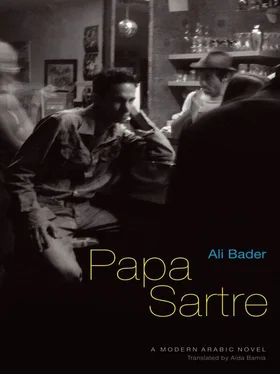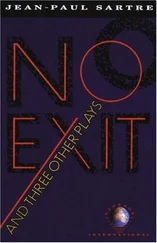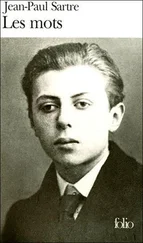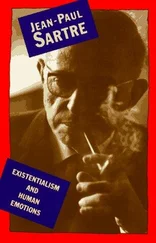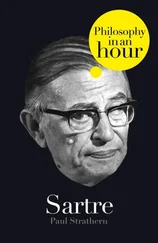I was not able to trace the outlines of the philosopher’s external appearance and physical form before imposing on his existence a semblance of unity within the order that produced it. In other words, I was looking for the system that provided him with this kind of support, one that exhausted and worried him, in which stupidity played the role of self-effacement, concern with people’s happiness, and a desire for organized reform. Because of my inability — for various reasons — to put all this material into one mold, I had to believe in him and in his philosophy and search for everything: the flowers he loved, the food he ate, the basin in which he washed, the smell of his soap lingering on the wood of the slippery floor. I had to describe his love for gardens, depict his impressions, and examine my own emotions toward those things. I had to look for a series of unusual events that elicited those feelings and moved him as a philosopher. I needed to find his happy, peaceful memories, his love stories — all those anxious feelings connected to events lost in a sea of obscurity.
At that time I could not find a single person who had retained a genuine memory of him, not one recollection untarnished by forgetfulness that contained a charming image of him. I needed one to place in the appropriate social frame, in its intellectual venue, and in its appropriate location in the biography. Overcome by confusion and distress, I spent hours searching for information. Nadia Khaddouri had disappeared and did not leave a forwarding address, and so had Ismail Hadoub. There were conflicting stories about the philosopher’s disappearance. His French wife had returned to Paris, his father had died, and despite repeated promises by Hanna Yusif to introduce his children to me, I never met them. The only person I was able to meet was Sadeq Zadeh, thanks to Hanna Yusif, who arranged the appointment with him.
I was walking alone that afternoon, toward a high palace behind the railway station. I had to cross a farm growing lettuce and red radishes. I watched the dark bony-faced peasants working, moving swiftly in the mud and straw near Nadhem Pasha’s small bridge. I could hear the sound of the horses’ hooves on the pavement of the main street, mixed with other sounds. The palace had high balconies, and its upper floors were covered with beautiful tiles. Sloughi dogs were barking in the garden.
A servant dressed in a colorful Lebanese costume received me. His face was covered with freckles, he had a bushy mustache, and he wore a small cap. He led me to the expensive metal main gate, rang the bell beside the door, and adjusted a thick silver watch that he pulled out of his pants pocket. We walked through a foyer with a polished white marble floor and into a large hall. Black marble stairs led to the second floor. The railing was made of wood and stone and overlooked the inner hall.
I was totally surprised to see Nunu Behar come out of the parlor on the right, while Sadeq Zadeh appeared at the top of the stairs, looking extremely elegant. As he walked down the marble stairs the light from the lamp on the table illuminated his beautiful trousers and the marvelous colors of his necktie. Nunu Behar greeted me with her warm fleshy hand and looked at me with her round face and her slightly full figure. The three of us sat in a room inlaid with precious stones and decorations. A high balcony overlooked rubber trees with dark green leaves. She said to me in a soft, lazy voice, “This is Sadeq Zadeh. You must cooperate with him,” to which I replied, “But I came especially to seek his cooperation.”
The place had an ambiance of intimacy. Sadeq Zadeh smiled at me with his handsome face and graying hair, while his malicious eyes darted nervously. He explained his position, “Yes, I will cooperate with you, but for my own sake and not for Hanna Yusif.” At this moment I looked at Nunu Behar, whose long black hair fell onto her shoulders. Her sensual face smiled at me. I could feel her humid skin under her thick woolen sweater. “You work for Sadeq Zadeh, not Hanna Yusif,” she explained. “What about you?” I asked, hardly hiding my surprise. “I’m with Sadeq, of course. What do you think? He is the only one financing the project. Do you think bankrupt Hanna is the one with the money?” I continued, “You didn’t say that before.”
“Everything in due time,” she explained.
“Why didn’t Sadeq Zadeh contact me first?” I asked.
“This matter does not concern you,” said Sadeq Zadeh, who seemed slightly upset. He added, “Look at all these files, they’re yours. They are the files of his true biography. This is what you’re looking for. I have them, not Hanna. You should only be concerned with the money and the files, and both are with me, naturally. I’ll provide you with everything, and we’ll end the project together. You’ll finish it up with me, not with Hanna.”
“I’ll do that, but what if Hanna asks me for the conclusion ending the work?” I asked. “Nunu and I will work things out,” he explained. “But I’m obligated to share the conclusion with him, since he is the one providing me with the money,” I replied, slightly upset. “It is Nunu’s money, and Nunu works with me, not with Hanna,” explained Sadeq.
“Why this insistence on the conclusion of the finished work?” I asked. When he heard my question, the expression on his face changed. He was smiling and so was Nunu, who was looking at him. He left his desk, brought two glasses of whiskey, and asked if I cared for a drink. Upon my negative reply, he gave the glass to Nunu and explained, “In reality there are things that do not concern you as you write. I won’t prevent you from writing the truth, not at all. I won’t ask you to write things that are not mentioned in the documents. The problem, however, is with the philosopher’s death. People don’t agree on the circumstances of his death. There are many versions. All I want is to choose one of the various endings and ask you to adopt it. I don’t want to do what Hanna is doing, which is to involve you. All I want is for you to present me with all the plausible endings, and I’ll choose the one I want.”
As a matter of fact I was very pleased with this meeting, since making such a choice would be inescapable. And we might even agree on the same ending. If one of the versions were acceptable and then adopted, I wouldn’t mind choosing it. I took the documents and left the house.
That evening I began writing the first words of the biography of the existentialist Iraqi philosopher nicknamed the Sartre of al-Sadriya.
1
The big clock in al-Sadriya souk chimed seven, waking Abd al-Rahman from his sleep. The sound was mixed with the shouting of street merchants selling vegetables, poultry, and fresh fruits, while the butchers, bakers, and fighting beggars gathered at the entrance of the souk. He was feeling sick. He slowly got out of bed and looked at a photograph of Jean-Paul Sartre hanging on the wall facing him. It was a gray photograph in a beautiful golden frame hung above shelves holding a selection of philosophy books, prominent among them were the French editions of Sartre’s books, organized carefully by title and content— L’être et le néant, Le Mur, L’existentialisme est un humanisme, Les chemins de la liberté, Les mouches— and some volumes of the journal Les temps modernes .
Abd al-Rahman’s house was located at the far end of Dr. Simon Bahlawan Boulevard, overlooking the open section of the aluminum-roofed souk. It was an extremely tidy house, elegant and beautiful. The rugs were thick Kashani, the high walls were covered with Indian wood, and the comfortable chairs were encrusted with silver and precious stones. Paintings and small pictures hung on the walls in a harmonious and orderly fashion. The outside entrance was made of polished marble shaded by the branches of old eucalyptus trees.
Читать дальше
